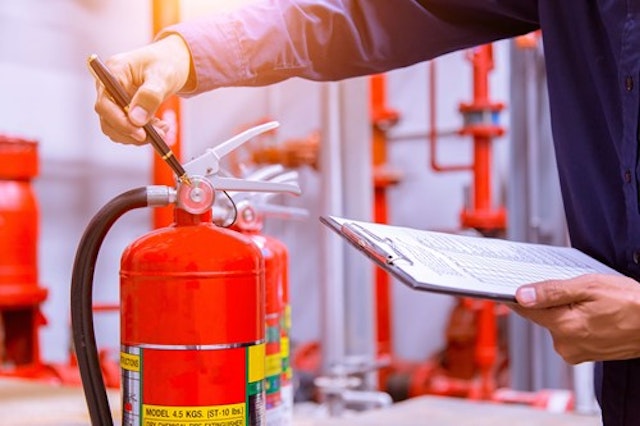- Do I need to appoint a fire warden in my workplace?
Do I need to appoint a fire warden in my workplace?
- HR Policies Documentation
Paul Logan, Health & Safety Operations Manager
(Last updated )
Paul Logan, Health & Safety Operations Manager
(Last updated )
Jump to section:
First published: May 16th 2023
Last updated: May 16th 2023
Do I need to appoint a fire warden in my workplace?
Employers have a general statutory duty of care under the Safety, Health and Welfare at Work Act 2005 (2005 Act) to ‘ensure, so far as is reasonably practicable, the safety, health and welfare at work of his or her employees’.
When it comes to fire safety, the person in control to any extent of the workplace should ensure a safe workplace to include safe access, safe egress and safe articles or substances if they’re stored onsite.
If your business occupies and uses a building to which members of the public are admitted, you also need to consider the Fire Services Acts (1981 and 2003) which impose further statutory duties in respect of fire safety on persons who have control of such premises.
There are also various Codes of Practice which include guidance on managing fire safety in sector specific settings.
Fire safety risk assessments
Employers must also identify hazards, assess risks and have a written risk assessment, including any unusual or other risks.
To comply with their obligation to carry out risk assessments and to record workplace risks in the Safety Statement, employers should make provision for completing a fire safety risk assessment. Generally, a fire risk assessment to PAS79 standards is sufficient for most workplaces.
A fire safety risk assessment should include an examination of the following areas of fire safety:
- Fire prevention
- An assessment of the building structure
- Fire detection and warning
- Evacuation, emergency escape and fire fighting
- Fire safety management at the premises.
Fire warden training
While the health and safety legislation doesn’t specifically impose a legal requirement on employers to appoint a fire warden, you must obtain, where necessary, the services of a ‘competent person.’
In the context of fire safety, a competent person is someone who has sufficient training, experience and knowledge with regard to fire safety and the fire safety issues affecting your premises.
If there is no fire safety expertise within your workforce therefore, you should engage a competent person to demonstrate current best practice and to supplement gaps in training.
The competent person will typically assist employers with developing strong fire prevention, detection and emergency escape practices which can be maintained on an ongoing basis by an appointed fire warden or fire marshal.
The key responsibilities of the fire warden
A fire warden should be a member of staff who is willing to take on the role and who is familiar with the layout of your premises. They should also be reliable enough to carry out regular check-ups on fire-extinguishers, emergency systems and other fire detection equipment. The fire warden will also have responsibility for ensuring that emergency exits are free of obstructions. One of the key roles of the fire warden is the safe management of any evacuation of employees and/or visitors on the premises in case of emergency.
How many fire wardens are necessary?
There is no specific number of fire wardens required under Irish health and safety legislation. You must simply ensure that there is a sufficient number of fire wardens and that they have adequate training and equipment.
An office building with two floors might need a fire warden on each floor for instance. The number of fire wardens must also take into account any particular risks or hazards inherent in the layout of your workplace or premises.
Need a Fire Risk Assessment or Fire Warden training?
Our Health & Safety experts can provide Fire Risk Assessments to PAS79 standards and Fire Warden training for employers to help you comply with all aspects of fire safety regulations in Ireland. Speak to us today on 1800 719 216
- Do I need to appoint a fire warden in my workplace?
FAQs
Got a question? Check whether we’ve already answered it for you…
Related articles
Try Brainbox for free today
When AI meets 40 years of Peninsula expertise you get instant, expert answers to your HR and health & safety questions
